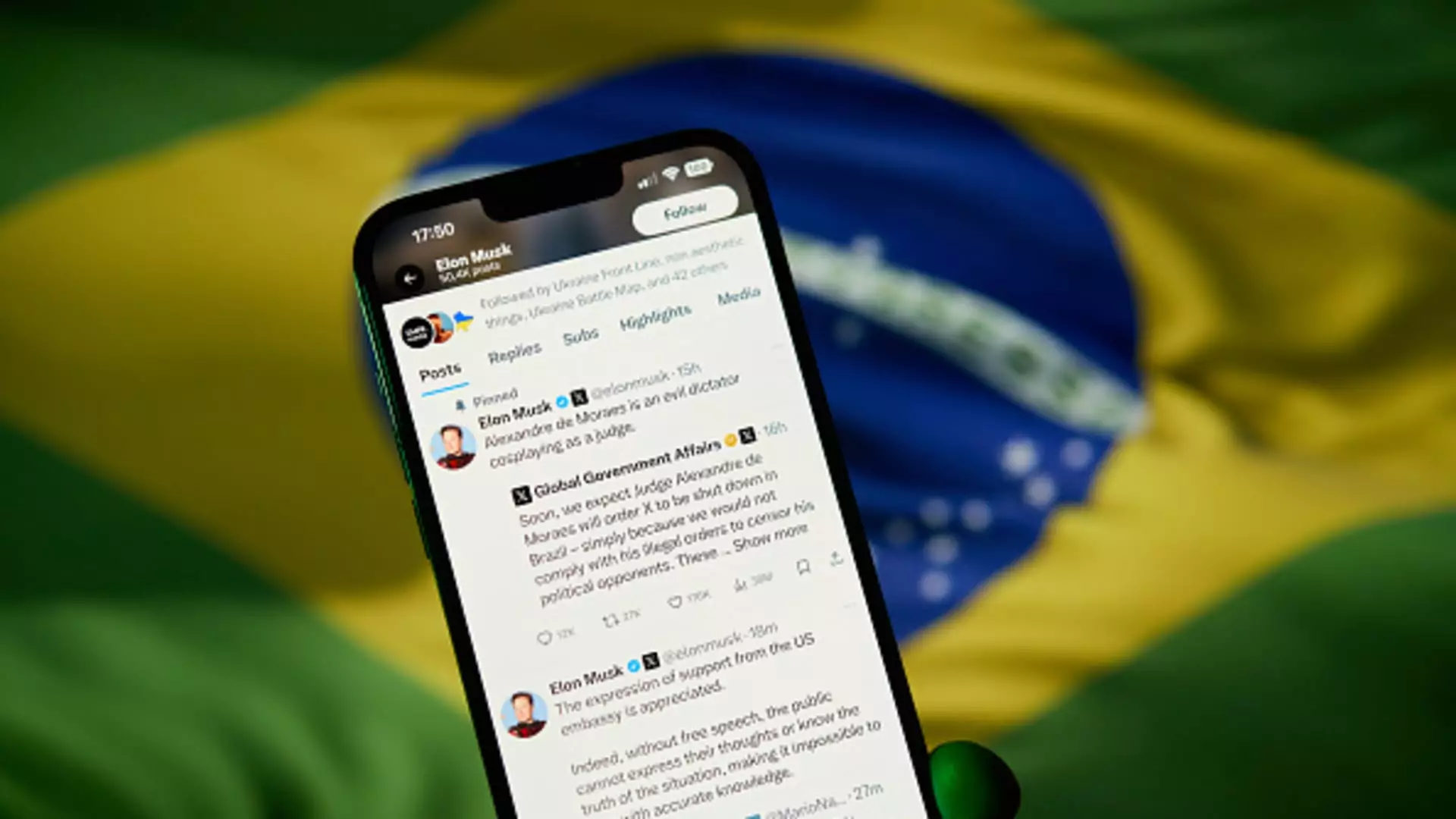A recent panel of Brazil’s federal supreme court justices unanimously voted to uphold orders suspending the use of Elon Musk’s social network X nationwide. This decision comes after Justice Luiz Fux expressed some reservations about a specific measure in the order that allows the court to fine individuals or businesses using “subterfuge,” such as VPNs, to access X while it is blocked.
The court’s top justice, Alexandre de Moraes, issued the controversial suspension orders late Friday, following a warning earlier in the week that Musk and X had 24 hours to appoint a legal representative in Brazil or face penalties. X had previously ignored court requests to remove content that violated Brazil’s laws on political misinformation and hate speech online.
In addition to the suspension orders, the court also froze the financial assets of another Musk-led business, Starlink, in Brazil to ensure that his social network would pay its fines. Anatel, Brazil’s telecoms regulator, instructed internet service providers, including Starlink, to block access to X until it complies with the court’s orders.
Despite the orders, Starlink has reportedly informed the regulator that it does not plan to comply, risking the revocation of its licenses to operate in Brazil. As a result, X was effectively suspended in the country, limiting access for users in a nation with a significant online population.
Musk and his companies have maintained that de Moraes’ actions are “illegal,” criticizing the court’s issuance of orders without proper due process. Musk has escalated tensions by publicly calling for the impeachment of de Moraes and making provocative statements about seizing assets to retaliate against the government’s actions.
The decision to block X in Brazil has generated mixed reactions among users and politicians, with some questioning the legitimacy of the ban. While many Brazilians have expressed difficulties in navigating other social media platforms in the absence of X, there has been a noticeable shift towards alternative networks like Bluesky.
Musk has often positioned himself as a proponent of free speech, but his actions have been inconsistent. While he has resisted government demands to censor content in some countries, X has removed critical content regarding ruling parties in Turkey and India.
The suspension of X in Brazil reflects a complex legal battle between Musk’s social network and the country’s judiciary, raising questions about the balance between freedom of speech and compliance with local regulations. As the situation continues to unfold, the implications for tech companies operating in Brazil and the broader implications for online speech and censorship remain a key area of concern.

Leave a Reply